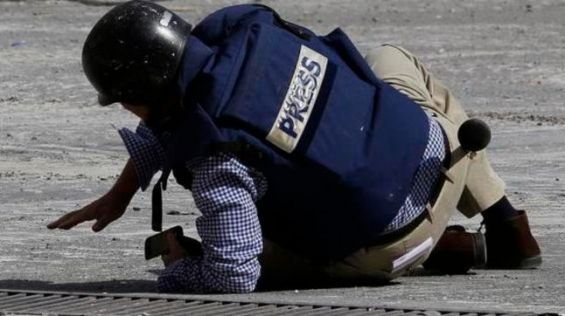Morocco’s ranking in the 2021 World Press Freedom has dropped. Released Tuesday, the report conducted by international non-profit and non-governmental organization Reporters Without Borders ranks the Kingdom 136th out of 180 countries. Last year, Morocco was ranked 133rd by the report.
According to the document, Morocco’s media would continue to be subjected to judicial harassment. «In addition to the trials of a number of media figures that have dragged on for years, several new prosecutions on sex charges have been initiated against journalists», Reporters Without Borders says.
The authors of the report believes that the charges against these media figures are «unrelated to their journalistic work». The report also suggests that «their trial hearings are systematically postponed and their provisional release requests are usually refused».
To back its claims, Reporters Without Borders refers to the case of journalists Omar Radi and Souleiman Raissouni, who would «have been in pretrial detention for eight and 11 months respectively, have submitted no fewer than 10 unsuccessful provisional release requests».
«Many journalists and citizen-journalists are still in prison»
Meanwhile, the NGO claims that «the manipulation of testimony by women has been used in several such cases». «The conduct of the trials and the media hype and defamation accompanying them deprive both victim and alleged aggressor of their rights», the report continued.
The international organization believes that some «harsh sentences were issued in this context, noting that many journalists and citizen-journalists are still in prison».
Reporters Without Border also referred to hunger strikes observed by the jailed journalists. «The victims of an iniquitous judicial system that clearly takes its orders from the government, these journalists have even had to put their own lives in danger by going on hunger strike in support of their right to due process», it pursued.
«Raissouni announced on 8 April that he was no longer eating. Radi followed suit the next day. Monjib, who has Moroccan and French dual nationality, was released provisionally at the end of March after 19 days on hunger strike and three months in preventive detention».
Regionally, Tunisia tops the list of Maghreb countries in the ranking, followed by Mauritania ranked second in the region and 94th in the world. Morocco comes third, ranked 136th, followed by Algeria, which came in 146th ahead of Libya ranked last in the region and 165th globally.
The report states that «as a result of constant harassment of journalists and media in North Africa, three of the region’s countries – Morocco, Algeria and Libya – continue to be marked red or black on the World Press Freedom map because their situation is ranked as 'bad' or 'very bad', although their citizens continue to demand more press freedom and access to information, as they have been doing since the 2011 Arab Spring».
Norway is ranked first internationally, while Finland retained its position in second place and Sweden regained the third place, which it lost last year to Denmark. In contrast, Turkmenistan (178th), North Korea (179th), and Eritrea (180th) are at the bottom of the ranking.





 chargement...
chargement...












